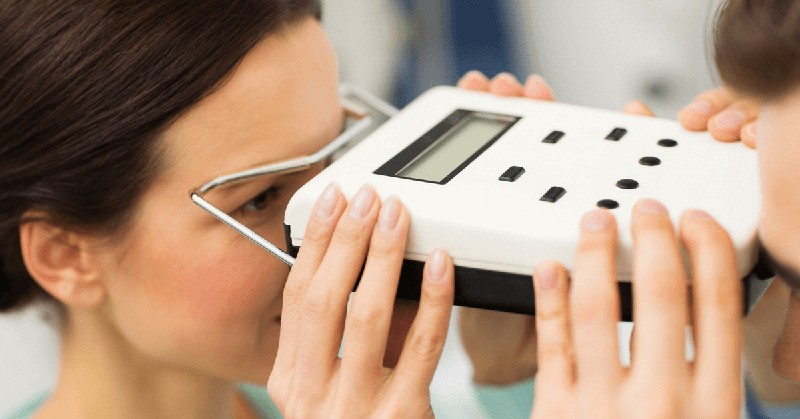Self-manage may well be critical to extended, happier daily life, research indicates
If your kids are properly-behaved, do they stand a higher prospect of obtaining nutritious, content lives as grown ups?
A new study states indeed.
Just after tracking just about 1,000 New Zealanders from delivery to the age of 45, investigators located that young children who have been target-oriented and much better able to restrain their feelings, habits and thoughts turned out to have more healthy bodies and brains by the time they strike middle age.
“We observed that as grown ups, at age 45, kids with far better self-command aged more little by little,” claimed study creator Leah Richmond-Rakerd.
“Their bodies and brains have been healthier and biologically youthful. We also identified that they experienced made far more health, fiscal and social reserves for aged age,” stated Richmond-Rakerd, an assisant professor of psychology at the College of Michigan in Ann Arbor.
Why? Richmond-Rakerd stated her crew thinks it has to do with obtaining “greater emotional regulation to deal with everyday living. They approach much better so that they expertise less crises and challenges. And their response to difficulties is additional measured and thoughtful when crises do arise.”
James Maddux is a senior scholar with the Heart for the Improvement of Effectively-Becoming at George Mason University in Virginia. Nevertheless not a element of the study workforce, he advised that the results may stem from a youthful means to hold off gratification.
“So lots of behaviors that lead to very poor health and fitness are the final result of a relative inability to hold off gratification,” explained Maddux, this means the lack of ability to forgo smaller, small-expression benefits in favor of much more significant very long-expression rewards.
Illustrations of small-phrase indulgences, he mentioned, could incorporate using tobacco, binge consuming, overeating, unsafe sexual intercourse and likely to get-togethers in the midst of a pandemic.
The review workforce gauged self-control amongst the ages of 3 and 11 by enlisting academics, moms and dads and the enrolled young children to evaluate every kids’ impulsivity, aggravation tolerance and capability to persist in achieving objectives.
Then, a mix of physical examinations, interviews and brain scans had been carried out at age 45 to decide actual physical overall health and social effectively-becoming as an adult.
The investigators located that people who had bigger self-control when young had much less indications of brain aging by middle-age, have been better informed about equally wellness and funds, and had made superior social capabilities.
Importantly, the group identified that the results held up even right after accounting for equally household profits and IQ scores.
“We ruled out the likelihood that self-management matters due to the fact children born into richer households have better self-regulate, or for the reason that children with better IQs have far better self-handle,” explained Richmond-Rakerd.
And even though acknowledging that “some young children create self-command a lot more conveniently than other individuals,” she stressed that the review also observed that “some individuals shifted in their stage of self-handle around time, suggesting that self-manage may be malleable, and subject to intervention.”
To that issue, the scientists discovered that it wasn’t just childhood self-manage that influenced properly-becoming later on in existence.
The review authors also concluded that “grownups with improved self-handle produced extra well being, economic and social reserves for old age, even if they did not have so much self-management as young children,” Richmond-Rakerd said.
“We consider this has significant implications,” she claimed. “Even if we did not physical exercise excellent self-management in early everyday living, there may nonetheless be prospects to get ready ourselves for growing older when we are in our 40s and 50s. It truly is not far too late.”
Maddux agreed. “There is some evidence that, like pretty much all features of individuality, the ability for self-handle is partially ‘wired in’ by your DNA,” he mentioned.
“But there is also a good deal of proof that self-command, or what is usually termed self-regulation, consists of a set of specific capabilities that can be discovered and practiced so that just one receives improved at them, like any other established of expertise,” he included.
“This suggests that anybody can master how to exert greater self-command,” no matter if that is through dad and mom “modeling” it for their small children or grown ups buying better self-regulation capabilities afterwards in daily life, Maddux stated.
“Of class, the more time you have been working towards negative self-regulation practices, the much more tough it will be to unlearn them,” Maddux explained. “But it can be completed.”
The report was posted on the web this week in the Proceedings of the Nationwide Academy of Sciences.
Much more details
You will find a lot more on childhood finding out at the U.S. National Institute of Child Overall health and Human Enhancement.
Copyright 2020 HealthDay. All legal rights reserved.







